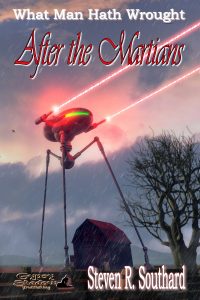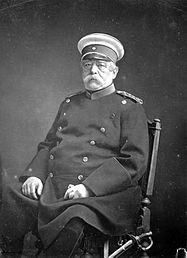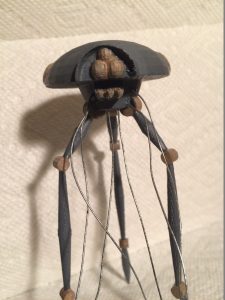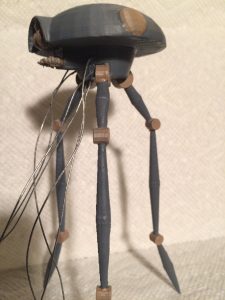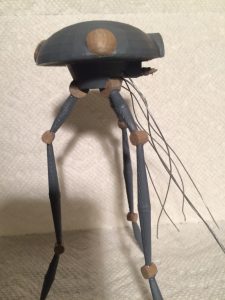I plead guilty…to violating many laws of science in my writing. But I’m not alone. I’m in good company with many other science fiction writers. Call us the Laser Pistol Gang.
Authors of so-called ‘hard SF’ should adhere to known scientific principles and knowledge, but aren’t above bending or breaking the laws of physics for the sake of a good story.
Mary Shelley really stretched biological science in Frankenstein when her fictional scientist animated a human from dead tissue. Jules Verne knew human astronauts wouldn’t survive the acceleration of a manned projectile launched from a canon in From the Earth to the Moon. H.G. Wells disobeyed temporal causality in The Time Machine. When he wrote Fantastic Voyage, Isaac Asimov understood the impossibility of miniaturizing people. From his medical training, Michael Crichton must have realized not enough intact DNA fragments remain to create the living dinosaurs of Jurassic Park.
These represent a small sampling from SF literature. Don’t get me started on SF movies, which seem to break more laws of science than they obey.
On what charges could the science police arrest me? Consider my rap sheet:
- “The Steam Elephant” (from Steampunk Tales, Issue #5 and The Gallery of Curiosities #3). The state of steam and mechanical technology in the 19th Century did not allow for a walking, steam-powered, quadrupedal vehicle.
- “Within Victorian Mists.” Everything needed to invent lasers existed in the 1800s except the conceptual framework, so if it had happened, it would have required dumb luck.
- “Bringing the Future to You” (from Cheer Up, Universe!). That story contains too many science violations to list, but I meant the tale to be funny.
- “Leonardo’s Lion.” Some accounts state Leonardo da Vinci built a walking, clockwork lion. Even if true, it’s doubtful the creation would have supported a child’s weight or traveled over rough terrain, as it does in my story.
- “The Six Hundred Dollar Man.” Yes, steam engines existed in the late 19th Century, but no one then could have made one small enough to fit on a man’s back and power the man’s replacement limbs.
- “A Tale More True.” Try as you might, you can’t build a metal spring strong enough to launch yourself into space as my protagonist does.
- “The Cometeers.” In this story, I violate the same laws Verne did in launching humans to space using a canon. In fact, I used his same canon.
- “Time’s Deformèd Hand.” Nobody in 1600 AD built walking, talking automatons powered by springs. However, I did mention the wood came from magical trees.
- “A Clouded Affair” (from Avast, Ye Airships!). You couldn’t build a steam-powered ornithopter in the 1800s, and you’d find it difficult even today.
- “Ripper’s Ring” Human invisibility remains impossible today, let alone in 1888. Even if it were possible, it would render the subject blind.
- “The Cats of Nerio-3” (from In a Cat’s Eye). Evolution allows organisms to adapt to new environments, but neither cats nor rats would likely evolve in such a rapid and drastic manner as my story suggests.
- “Instability” (from Dark Luminous Wings). According to legend, a Benedictine monk constructed a set of wings and tested them sometime around 1000 AD. The wings work no better in my story than they would have in reality.
- “The Unparalleled Attempt to Rescue One Hans Pfaall” (from Quoth the Raven). Just because Edgar Allan Poe wrote about a balloon trip to the moon didn’t mean I had to repeat his error.
With so much law-breaking going on, how can we hope for an orderly reading society? Must we be forever besieged by the criminal authors of the Laser Pistol Gang?
That answer, I’m happy to report, is yes. Authors write to entertain readers. That’s a writer’s ‘prime directive,’ to steal a phrase. If the writer must bend or break a rule of science to tell a good story, the writer is going to do it.
One key phrase there is ‘good story.’ The better the story, the easier it is for a reader to forgive a scientific flaw. Of course, if you can tell a good story while keeping the science accurate, by all means, do that.
If you aim to join the Laser Pistol Gang, be aware we have a tough initiation ritual. You have to write a story where a law of science gets broken. Not a very exclusive gang, I admit. But it’s a proud, longstanding group. Take it from one of its most notorious members, known by his gang name—
Poseidon’s Scribe


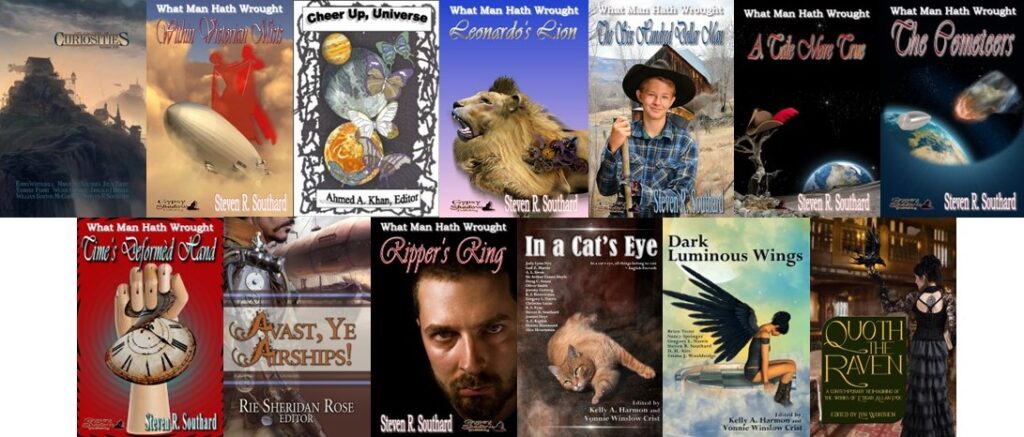
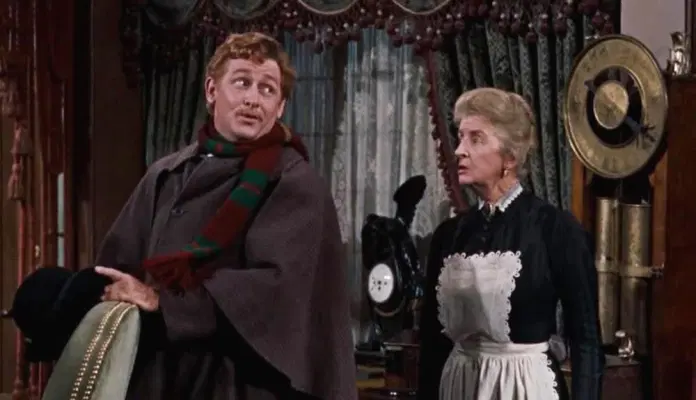
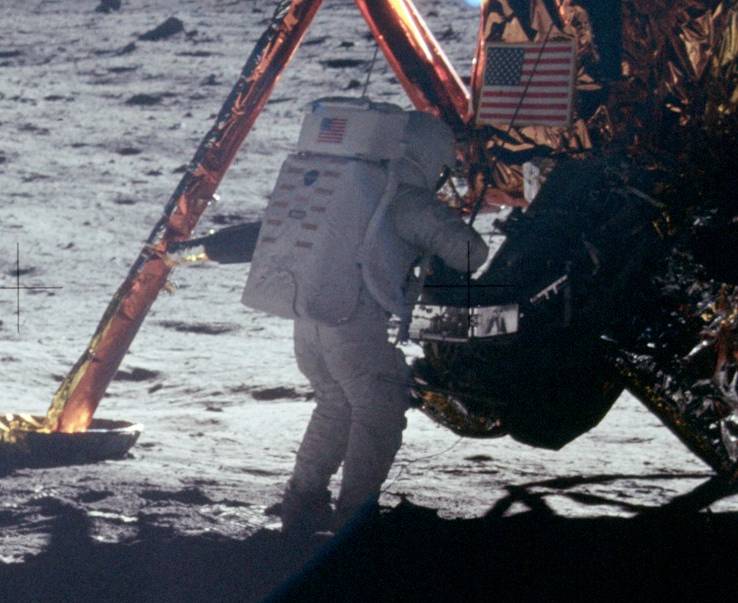
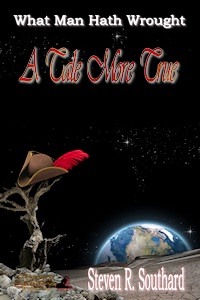
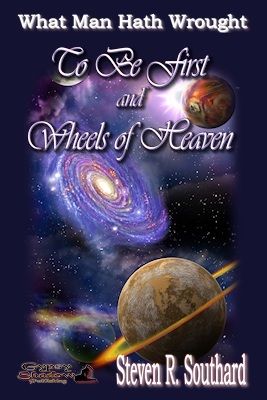
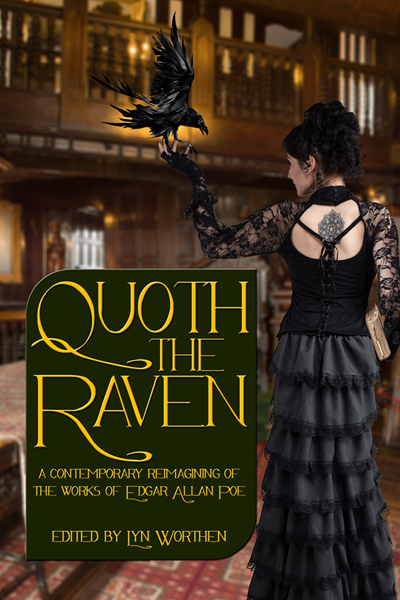


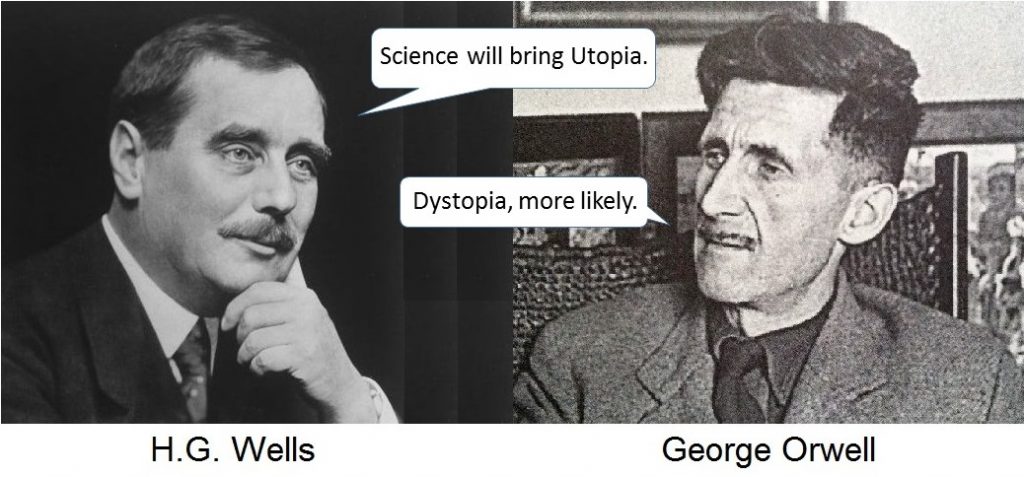 H.G. Wells, best known for his science fiction novels such as The War of the Worlds and The Time Machine, believed science was the best hope for humanity’s future. George Orwell, an essayist, critic, and author of 1984 and Animal Farm, took a less optimistic view.
H.G. Wells, best known for his science fiction novels such as The War of the Worlds and The Time Machine, believed science was the best hope for humanity’s future. George Orwell, an essayist, critic, and author of 1984 and Animal Farm, took a less optimistic view.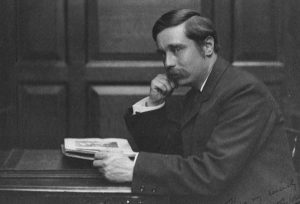
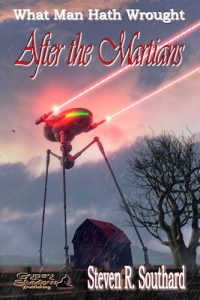
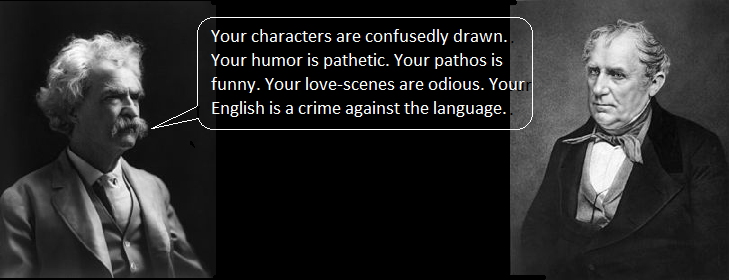 In Twain’s acerbic style, he starts by accusing three Cooper-praising reviewers of never having read the books. He then lays into Cooper, saying, “…in the restricted space of two-thirds of a page, Cooper has scored 114 offenses against literary art out of a possible 115. It breaks the record.” Twain asserts there are 19 or 22 rules “governing literary art in domain of romantic fiction” and says Cooper violated 18 of them. He lists those 18 rules.
In Twain’s acerbic style, he starts by accusing three Cooper-praising reviewers of never having read the books. He then lays into Cooper, saying, “…in the restricted space of two-thirds of a page, Cooper has scored 114 offenses against literary art out of a possible 115. It breaks the record.” Twain asserts there are 19 or 22 rules “governing literary art in domain of romantic fiction” and says Cooper violated 18 of them. He lists those 18 rules.